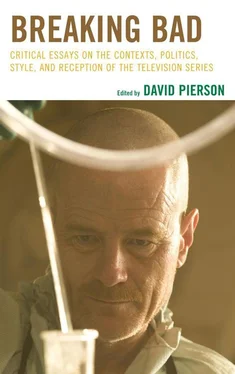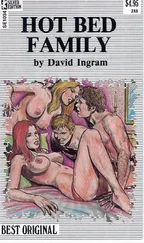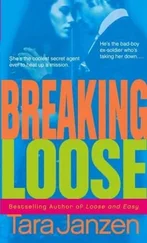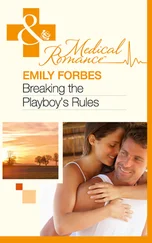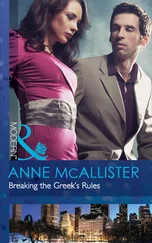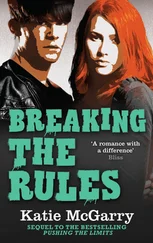“AMC pulls plug on ‘Remember WENN.’” Albany Times Union . (28 September 1998): C-4.
Bianculli, David. “AMC’s Brand-Smart Strategy.” Broadcasting and Cable. (29 September 2008): 40.
Caldwell, John T. “Critical Industrial Practice: Branding, Repurposing, and the Migratory Patterns of Industrial Texts.” Television and New Media . 7:2. (May 2006): 99-134.
Edgerton, Gary R. “Introduction: When Our Parents Became Us,” in Mad Men: Dream Come True TV , edited by Gary R. Edgerton, xxi-xxxvi. New York: I.B. Tauris, 2010.
“Emmy Winners.” Pittsburgh Post-Gazette. 17 Sept. 2007: C3.
Gomery, Douglas. “American Movie Classics.” The Museum of Broadcast Communications. 2013. http://www.archives.museum.tv/eotvsection.php?entrycode=americanmovi.
Huff, Quentin B. “Characters, Compounds, and the Study of Change in ‘Breaking Bad: Season 3.’” PopMatters . 8 June 2011. http://www.popmatters.com/pm/column/142497-characters-compounds-the-study-of-change-breaking-bad/.
Koepsell, David R. and Robert Arp, eds. Breaking Bad and Philosophy . Chicago: Open Court, 2012.
Klinger, Barbara. “Digressions at the Cinema: Reception and Mass Culture.” Cinema Journal . 28:4. (Summer 1989): 3-19.
Kroll, Justin. “Aaron Paul’s ‘Bad’ Trip, ‘Breaking’ Character was Almost Killed Off.” Daily Variety . 308:40. (30 August 2010): 18.
“Movies That Shook The World.” IMDb: Internet Movie Database. 2012. http://www.imdb.com/title/tt0390776/.
Owen, Rob. “AMC Gives Its Quirky Series, ‘The Lot,’ A Quick Run.” Pittsburgh Post-Gazette . (19 August 1999): D-1.
———. “AMC’s ‘Remember WENN’ is a Swell Piece of Work.” Albany Times Union . (6 July 1997): 45.
Segal, David. “Art of Darkness.” The New York Times . 10, July 2011. 18-23.
Sergeant, Jill. “From Bad to Worse for TV’s ‘Breaking Bad’ Dad.” Reuters.com . U.S. edition. 3 March 2009. http://www.reuters.com/article/2009/03/03/television-breakingbad-idUSN2628364020090303.
“Shootout — AMC.” IMDb: Internet Movie Database. 2012. http://www.imdb.com/title/tt0489613/.
Umstead, Thomas R. “AMC To Move in New Direction.” Multichannel News . 23:19 (13 May 2002): 90.
Whitney, Daisy. “Original Series Help Cement a Network’s Brand.” Electronic Media . 21:18 (6 May 2002): 28.
I
The Contexts of Breaking Bad

Breaking Bad (AMC). Season 1 Episode 1: “Pilot.” Airdate: January 20, 2008. Shown: Bryan Cranston.
AMC/Photofest © AMC. Reprinted by permission of Photofest.
Chapter 1
BREAKING NEOLIBERAL? CONTEMPORARY NEOLIBERAL DISCOURSES AND POLICIES IN AMC’S BREAKING BAD
David P. Pierson
Faced with a terminal illness and a strong desire to take care of his family financially long after his death, Walter White (Brian Cranston), a mild-mannered, put-upon New Mexico high school chemistry teacher, begins producing and selling crystal methamphetamine or meth. He enlists the aid of former student Jesse Pinkman (Aaron Paul) to help him market and distribute his high-end product to large illegal drug operators in the American Southwest. While Breaking Bad’s story premise may seem particularly unsavory given the dangerously addictive nature of crystal meth, Cranston’s intensely intelligent and empathetic performance coupled with a large dose of dark humor have made the show a hit with cable television audiences. The black comedic elements are evident in the episode “The Cat’s in the Bag…” (1/27/08), where Walt and Jesse are faced with the gruesome tasks of disposing of a dead body and dispatching a drug dealer who tried to kill them. Walt decides that the best way to get rid of the body is to dissolve it in an acid bath. Jesse, however, botches Walt’s specific equipment requests which leads to the upstairs bathtub crashing through the second floor and depositing mounds of partially dissolved body parts splattered all over the first floor.
Besides providing viewers with a dramatic and darkly humorous experience, Breaking Bad also addresses contemporary discourses about neoliberalism and their effects on society. Before exploring these issues, it is useful to define the core beliefs that underscore neoliberalism, as well as looking at how it has been investigated in television studies. The central idea underscoring the neoliberal ideology is that the market should be the organizing agent for nearly all social, political, economic, and personal decisions. According to Robert McChesney (1999), initiating with the Thatcher and Reagan Administrations, for the past three decades, “neo-liberalism has been the dominant global political economic trend adopted by political parties of the center and much of the traditional left and the right” (McChesney 7). On the political front, neoliberalism is generally characterized as “free market policies that encourage private enterprise and consumer choice, reward personal responsibility and entrepreneurial initiative, and undermine the dead hand of an incompetent, bureaucratic government that is incapable of doing good for its citizenry” (McChesney 7). Increasingly, neoliberal ideology has eroded the powers of democratic institutions to affect public policy that can be shown to have a negative impact on “the market.” This chapter argues that the TV series Breaking Bad intersects with neoliberal policies and discourses, and exemplifies several of its detrimental social and political effects.
NEOLIBERALISM AND TELEVISION
On network television, neoliberalism has primarily been explored in reality TV programming. Laurie Ouellette (2004), for example, examines how the popular syndicated, daytime courtroom program Judge Judy with its reputation of “zero tolerance for nonsense” interconnects with neoliberal policies and discourses in the 1990s. She asserts that Judge Judy uses the courtroom as a symbol of state authority to foster the outsourcing of governmental operations and to promote the transition to a neoliberal society. Ouellette claims that court programs like Judge Judy make use of the daily trials of everyday working-class women to instruct television viewers on how to function, without state invention, and become a self-enterprising and self-sufficient citizen. Shows like Judge Judy do not so much challenge existing democratic ideals as much as they construct new models of neoliberal citizenship “that complement the privatization of public life, the collapse of the welfare state, and the discourse of individual choice and personal responsibility” (Ouellette 232). Ouellette, working in conjunction with James Hay, continued to explore how reality TV constructs “good” neoliberal citizens in their 2008 study Better Living Through Reality TV . Reality TV primarily functions as a cultural technology to cultivate good citizenship through self-governance. Reality TV offers instruction and aid in managing lifestyles, health, and finances as well as providing people with ways to improve their homes and personal appearances. Reality TV does not so much promote a neoliberal ideology as it provides accessible models of citizenship for neoliberal social structures. Although reality programming often focuses on individual crises and concerns, it rarely addresses the social inequalities of socioeconomic status, race, and gender that may have contributed to these “individual” problems (Ouellette and Hay, 2-5).
Читать дальше
